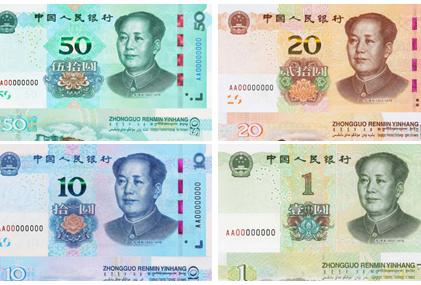

Some Americans are always holding a grudge against China’s trade surplus with the US, saying the US is losing $500 billion in trade to China each year and has lost millions of manufacturing jobs. They claim that the US is a victim in the China-US trade.
Such claim once again became one of the reasons for the US to go back on its words and frequently make extreme pressure against China despite the latter’s sincerity during the recent years.
As the world’s strongest economic power, the US is a rule-maker for international trade. The rule-maker is unlikely to lose unless it makes rules that benefit others and hurt itself. But this assumption doesn’t make any sense.
Indeed, Uncle Sam is never a victim but an exploiter in both global trade and the China-US trade, and this point is well understood by the American industries, consumers and economists.
The huge US deficit with China is not created by China, nor will it end because of China.
Overconsumption, lack of reserves and huge financial deficit pose as the fundamental causes for the US trade deficit. However, the US is taking advantage of the expanding deficit and acquiring massive capital at low prices through the recycling of the US dollars – a reserve currency and the major means of payment in global trade.
The US invested in industries such as the high-tech sector, ending up as the largest beneficiary of the economic globalization.
Carmen Reinhart, professor of the International Financial System at Harvard Kennedy School, said that the US accusation on the countries with trade surplus is meaningless. Her remarks echo with the points held by mainstream economists around the world.
The US trade deficit with China is only what appears on the surface. It cannot reflect the real benefits that US businesses are gaining in China.
The world economy is now closely knitted by a global value chain, and the US is at the high end of the global industrial and value chains regarding production, gaining huge profits by its control over the high value-added links such as patented technologies, core parts, design and development, and marketing.The iPhones of the Apple Inc. are an example.
To add the surplus on the exporting countries is not an objective method to reflect the distribution of values in trade. In fact, in order to get a better understanding of the profit distribution in the global value chain of each country, the World Trade Organization (WTO) and the Organization for Economic Co-operation and Development (OECD) have been encouraging the measuring of international trade in value added since 2011, adopting a perspective of “made in the world” on internationalized production.
However, the US is always using whatever that suits its interests and abandoning whatever that does not when it comes to multinational organizations such as the WTO. It will never support the approaches in which it finds no interests even if the approaches are well structured.
At present, US enterprises are generating $700 billion of revenue in China each year, with over $50 billion of profit, which couldn’t have been achieved without the opportunities and results brought by the development of China.
It’s well-know that the US enjoys low commodity prices. Over the years, when central banks of many countries were busy combating inflation, the US has always kept its inflation below 2 percent. It is a result of the cost-efficient Chinese products that entered the US market.
In the book Nonzero: The Logic of Human Destiny, Robert Wright, a famous writer for the Time magazine noted that the world should turn from the age of zero-sum games to nonzero. Over the past 40 years, China-US trade volume grew by over 230 times. Such an overwhelming change could not have been achieved with zero-sum games in which there is always one party being hurt.
China has always been a major importer, and will still keep its door open during development. At present, China is the largest trading partner of over 120 countries and regions. The country never goes for trade surplus, and is sincerely hoping to expand the import of competitive products from the US.
According to relevant US organizations, the US deficit against China would be reduced by around 35 percent if the country eases its restriction on the export of high-tech products to China. It makes no sense that Uncle Sam puts the blame on others when it refuses to export its advanced products.
Besides, it is also ungrounded to say the US is losing manufacturing jobs because of the trade deficit with China. The US academic world attributes the unemployment in the manufacturing sector to the economic restructuring of the US itself, explaining the automated production and the application of robots have improved production of the industry.
Foreign trade does impact industries in inferior position, but it will also help the expansion of the competitive industries and contribute to industrial upgrading.A research done by scholars from the University of California indicated that the US is creating more high-income employment than it is losing jobs in foreign trade.
These simple facts and logic prove that the US has no reason to say it is losing out to China in the trade relationship because of trade deficit and loss of manufacturing jobs. The US might temporarily transfer its domestic contradictions by emphasizing the so-called losses, but it will only hurt the US citizens in the long run.
According to an April research on business environment by the National Association for Business Economics of the US, nearly three quarters of the respondent companies have been impacted by the recent tariffs, thus facing higher cost. Almost half of these companies raised their sale prices.
The US consumers, ranchers and enterprises are the victims of the US-invoked trade war, rather than the so-called “unfair competition with China”.
It is obvious to all that by claiming the losses in the trade with China, the US is not merely seeking recognition among US citizens. There are hidden reasons for Uncle Sam to make up all the stories.
However, the storytellers miscalculated. Thanks to the huge resilience and potential of Chinese economy, China has the confidence and the capabilities to promote high-quality development, offset the negative impacts caused by the trade friction, and realize long-term and stable growth by a higher level of opening up and the expansion of domestic demand.
What the US has said is totally groundless and only hurts others without benefiting itself. So it’s better for the country not to repeat such point.
(Zhong Sheng, a homonym in Chinese for “voice of China”, is a pen name often used by People’s Daily to express its views on foreign policy)
 2019 Beijing International Horticultural Exhibition attracts global attention
2019 Beijing International Horticultural Exhibition attracts global attention Visitors view holographic light show in east China's Qingdao
Visitors view holographic light show in east China's Qingdao Young people play vanguard role in realizing national rejuvenation
Young people play vanguard role in realizing national rejuvenation Various plants at Beijing International Horticultural Exhibition
Various plants at Beijing International Horticultural Exhibition Moscow Zoo head says poised to host pandas from China
Moscow Zoo head says poised to host pandas from China Wildlife protector in China's Inner Mongolia Autonomous Region
Wildlife protector in China's Inner Mongolia Autonomous Region Azalea flowers on Gaomu Mountain in E China's Zhejiang
Azalea flowers on Gaomu Mountain in E China's Zhejiang China to issue new RMB bills in August
China to issue new RMB bills in August Giant asteroid will fly by Earth in decade
Giant asteroid will fly by Earth in decade Top 10 most sustainable cities in China
Top 10 most sustainable cities in China Top 10 European patent applicants in 2016
Top 10 European patent applicants in 2016 The power of 'She' in China
The power of 'She' in China Seven most beautiful art museums in China
Seven most beautiful art museums in China No interference in Venezuelan issues
No interference in Venezuelan issues
 Biz prepares for trade spat
Biz prepares for trade spat
 Broadcasting Continent
Broadcasting Continent Australia wins Chinese CEOs as US loses
Australia wins Chinese CEOs as US loses
Day|Week